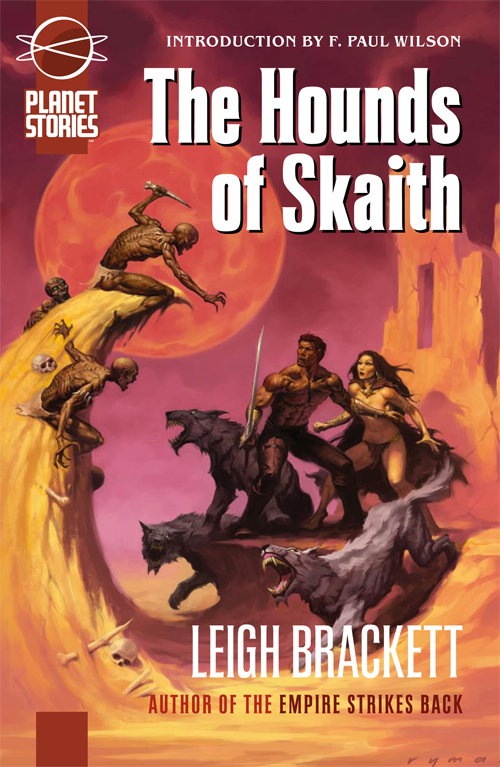My first encounter with mythology was, so far as I can remember, via an older brother’s copy of Edith Hamilton’s Mythology: Timeless Tales of Gods and Heroes (1942). In retrospect the title is presumptuous, as it covers only only the Greek, Roman and Norse mythoi, but at the time I didn’t know how many cultures around the world had traditional stories about gods, monsters, and, sometimes, human heroes encountering them. Moreover, as I later came to understand, her sources for these most familiar versions of the Greek stories (other than Homer) were often the Roman retellings dating to the pomo Imperium–were what we might now call fantastic literature rather than genuine myth. Be that as it may, these were my first myths, and I read all I could get my hands on in the children’s section of our library.
So when I opened Rick Riordan’s The Lightning Thief, it was with a sense of coming home, in the best possible way. The central premise of the hugely entertaining book and its nearly as enjoyable sequels (titled collectively Percy Jackson and the Olympians) is that the Greek gods, and all the monsters of Greek myth as well, are as active today as in antiquity. Since Olympus follows Western civilization around, it currently occupies the six-hundred-and-sometieth floor of the Empire State Building in Manhattan. The Greek gods are still as, er, prone to falling in love with mortal women as ever, with all the resulting demigod heroes/troublemakers you might expect. However, because demigods have such a poor prospect of reaching adulthood, the Olympians have set up a summer camp on Long Island, called Camp Half-Blood, where prospective heroes can learn survival skills and train for heroic quests. Now, Zeus, Poseidon and Hades took a vow after World War II to abstain from unions with mortal women, because their offspring had come so close to destroying civilization entirely. Think they succeeded in their vow? Meanwhile, there’s a prophecy around regarding a child of one of the Big Three, as they are known, such that every monster and minion of Kronos (who is scheming to reassemble himself and escape Tartarus) is out hunting for such a child in order to destroy him or her.
…
Read More Read More
 Once, before I gave up arguing with anyone, I was arguing with someone and I wrote, “Science fiction is just a form of fantasy with stricter (but slightly inconsistent) rules. Fantasy fiction takes place in a world which does not exist, operating on principles chosen by the author; science fiction takes place in a world which doesn’t exist but might, operating on the principles of science as we understand it (with some cheating allowed in the form of time travel, FTL drives, Amazing Mental Powers etc).”
Once, before I gave up arguing with anyone, I was arguing with someone and I wrote, “Science fiction is just a form of fantasy with stricter (but slightly inconsistent) rules. Fantasy fiction takes place in a world which does not exist, operating on principles chosen by the author; science fiction takes place in a world which doesn’t exist but might, operating on the principles of science as we understand it (with some cheating allowed in the form of time travel, FTL drives, Amazing Mental Powers etc).” The Return of the King (ABC TV, 1980)
The Return of the King (ABC TV, 1980) I’m not what you’d call a comics guy — I don’t have a set of first editions in acid-free bags in the closet, I couldn’t tell you who the Fantastic Four are, or even distinguish between Marvel and DC (though I’m pretty sure Spiderman is in one camp, and Batman in the other). But I’ve always liked and respected the medium, and the rise of the graphic novel has made sampling the best of what comics has to offer convenient for casual fans like me. So, when I spotted a recommendation in an online forum for Planet Hulk, a graphic novel in which the big green superhero takes on the role of John Carter in a sword and planet epic, I was intrigued, and made an impulse purchase. I’m glad I did.
I’m not what you’d call a comics guy — I don’t have a set of first editions in acid-free bags in the closet, I couldn’t tell you who the Fantastic Four are, or even distinguish between Marvel and DC (though I’m pretty sure Spiderman is in one camp, and Batman in the other). But I’ve always liked and respected the medium, and the rise of the graphic novel has made sampling the best of what comics has to offer convenient for casual fans like me. So, when I spotted a recommendation in an online forum for Planet Hulk, a graphic novel in which the big green superhero takes on the role of John Carter in a sword and planet epic, I was intrigued, and made an impulse purchase. I’m glad I did.
 Certainly not, but that really may be the central genre-defining element. I was thinking about this while reading Justina Robson’s excellent
Certainly not, but that really may be the central genre-defining element. I was thinking about this while reading Justina Robson’s excellent 
 “So just what is science fiction?” asks editor Lou Anders in the preamble to his second and latest volume of Fast Forward, an annual collection of original genre stories (you can find my review of the first edition
“So just what is science fiction?” asks editor Lou Anders in the preamble to his second and latest volume of Fast Forward, an annual collection of original genre stories (you can find my review of the first edition